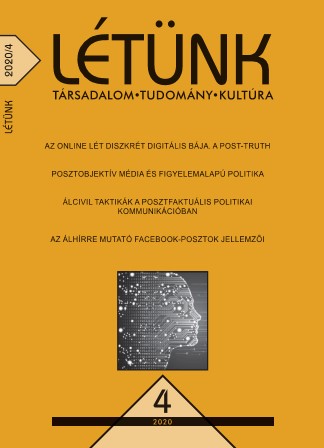POSZTOBJEKTÍV MÉDIA ÉS FIGYELEMALAPÚ POLITIKA
Post-Objective Media and Attention-Based Politics
Author(s): Norbert MerkovitySubject(s): Media studies, Politics and communication, Politics and society, Theory of Communication
Published by: Fórum Könyvkiadó Intézet
Keywords: political communication; attention-based politics; post-objective media; post-truth; attention-based economy
Summary/Abstract: Fake news, deep fake, conspiracy theories, alternative realities. These are just some of the labels that bounce back on today’s media and politics. One might think that the interplay between journalists and politicians makes it challenging to decide what is real, what is acceptable, and what is false these days. This study does not intend to exempt these two actors; it offers new perspectives on the debate by taking into account the attention of citizens as well as the opportunities arising from attention management. It uses two things for this, the basic features of post-objective (post-truth) media environment, and the changes taking place in the current fourth era of political communication. The post-objective media environment underscores the complexity of journalism, where on social media, practically anyone can be a journalist, and anyone can share information with their followers. Content and objectivity are separated, making it more difficult to define what information is and what opinion is. The situation becomes incredibly complicated when the information sender is willing to “celebrate” the news according to the needs of particular interest. In this case, the content may undergo further changes. And the fourth era of political communication emphasizes that politicians have stepped out from the political public sphere into the scene of social (or cultural) public sphere, where they find themselves in a shared environment not only with their opponents but also with other non-political actors. Closely related to this is the fact that attention has become the last means of payment for people to make someone successful. The study presents this process through the example of Kim Kardashian. The essence of this is that attention is a scarce good; the acquisition of it can not only arouse interest but also divert it. For politicians, this is a significant development, as even through negative news, it is possible to achieve less focus on opponents and non-political actors. Attention control and maximization is, therefore, an important feature that can be used to win elections.
Journal: Létünk
- Issue Year: L/2020
- Issue No: 4
- Page Range: 41-56
- Page Count: 16
- Language: Hungarian

